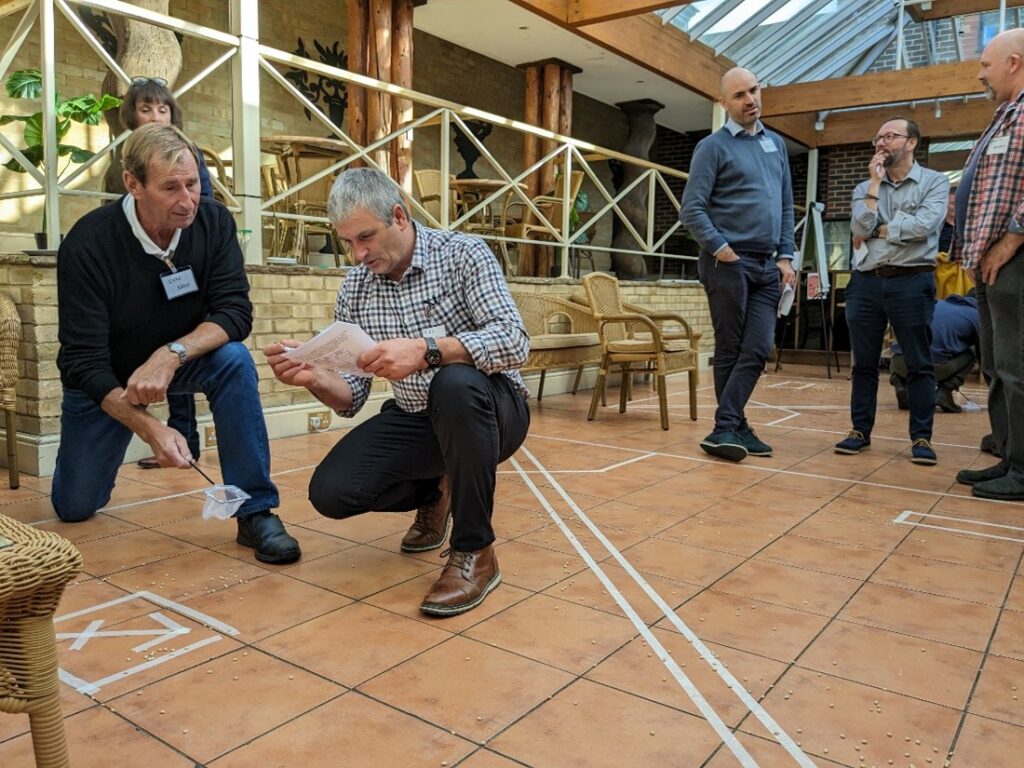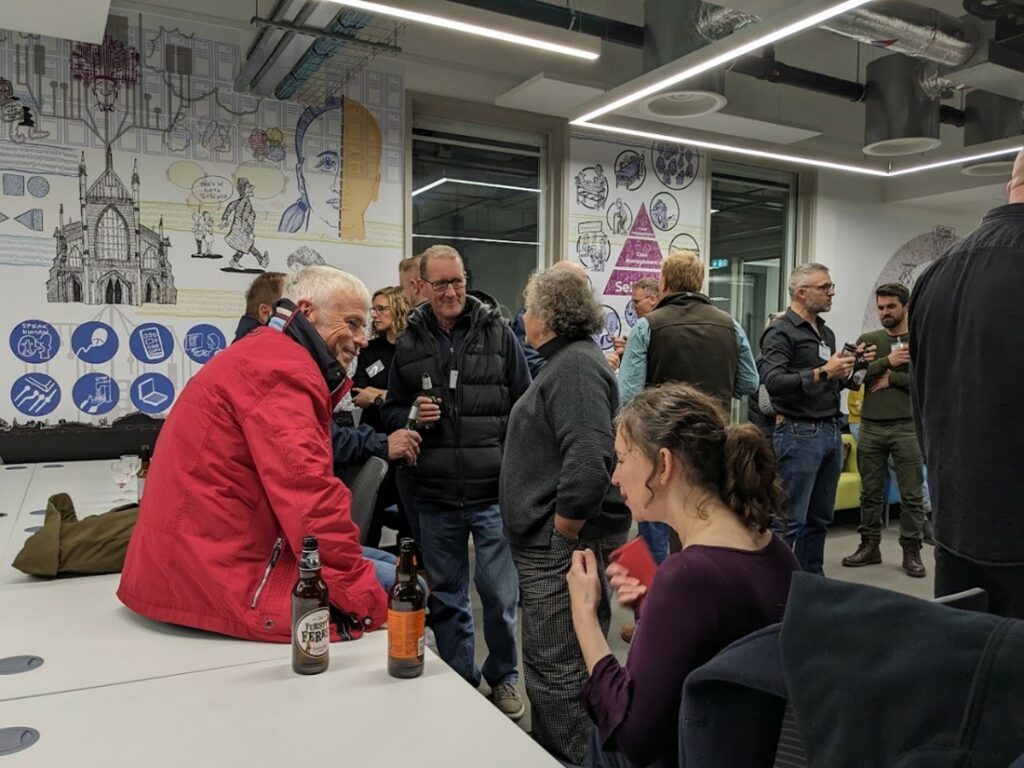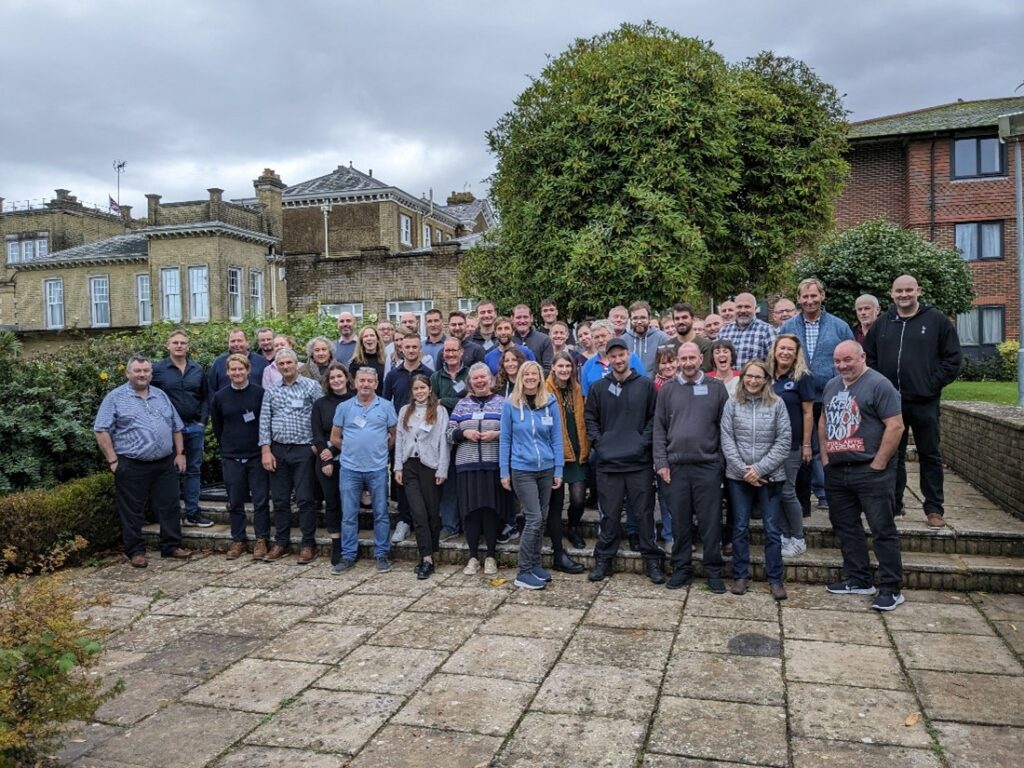

Emma Plotnek, Executive Director at the charity Fishing into the Future, looks back a hugely successful 3 day event, “by fishermen, for fishermen” and funded by the Company’s Fisheries Charitable Trust, that is set to be rolled out elsewhere in the UK in 2024.
The Fishing into the Future (FITF) 3-day Fisheries Recourse Education Programme on the south coast, brought together 34 working fishermen and industry representatives with a wide range of those involved in the science and management of British fisheries, including officials from DEFRA and the MMO, and scientists from CEFAS and UK Universities.

The Fisheries Resource Education Programme, or F-Rep, as it is known, aims to break down barriers between people working within industry (connecting fishermen who work along the coast from one another but don’t know each other) and also between fishermen, scientists and managers.
We encourage people to exchange stories and learn from one another, and invite fishermen to facilitate sessions and be actively involved in the planning and delivery of the event.
FITF is a charity that is dedicated to supporting people involved with the fishing industry to work effectively together. We believe that co-management – an approach where key groups work together in decision-making – is the best approach to build sustainable fisheries and a prosperous fishing industry. But the success of co-management depends on having the right conditions for everyone to work together. This event was designed to equip working fishermen with the skills, connections and confidence to further (or to jumpstart) their participation in fisheries science and management.
We want to create the best conditions for co-management, collaborative research and industry led science, where industry, science and government are all participants in research and decision making. F-REP was about encouraging and giving the chance for people from the fishing industry who are not always able to effectively input into these spaces the opportunity to gain the skills and connections to effectively participate. Equally importantly it is also breaking down barriers for people in science and management to understand and reach the industry.
The agenda itself – tells its own story. Day one concentrated on fisheries science and data collection, with a mix of government and academic scientists such as Professor Mike Kaiser from Heriot-Watt university and Rui Viera from CEFAS giving talks tailored to working fishermen, giving participants an insight into the marine environment and ecosystems of their local environment. This was complemented with examples of industry led science, with, for example, Gary Buchan, skipper of the scalloper Evening Star discussing his involvement over several years of collecting and providing data for use in scallop stock assessments.

Day two looked at an issue that will occupy a huge amount of the industry’s time and efforts in the next 12 months- Fisheries Management Plans. Whilst consultation on the first round of FMPs concluded this autumn, 2024 will see the process accelerate, with 26 more expected within the year – a hugely ambitious target. The day also looked at how to create, build and strengthen fishing associations, and as importantly, help them deliver their messages on behalf of members. This rolled over into day 3, where social science, anthropology, economics, and marketing were also thrown into the mix.
For myself, highlights were the connections the people in the room made with each other. Despite working different roles we were able to see each other as fellow humans with good intentions, we share a common goal and an interest in supporting fishing communities, fisheries, and healthy seas. This sometimes meant challenging each other and asking difficult questions – but we are all walking away better connected and with a greater understanding an empathy for each other. Ideally we can now pick up the phone to each other when we have an issue – and try and resolve it together!
The recipe for success of F-REP is using a mix of interactive learning and speaker sessions, the activities in the agenda were a big hit – as people get to practice skills and working together. “We ran an activity where groups designed and carried out stock assessment surveys using bags full of thousands of beans to represent fish stocks! People got their mathematical and analytical brain going to comprehend the complexity of fisheries science.”
We also had a great session where groups were given challenging and common scenarios that reflect the reality of the combined issues that affect fisheries management decisions. Groups had to negotiate and agree proposals for a Fisheries Management plan. Working together as fishermen, scientists and government – however we got people to swap roles, so fishermen played the role of NGOs and Government, and government were simulating the role of fishermen, using humour and getting people comfortable with the process of engaging in an FMP. Even the most sceptical and reserved people got involved and were enjoying playing their role, and everyone came out with a better understanding of the process and each other!

Every time I looked around the room people were engaged, listening, asking questions and following each and every session – very little staring at phones, leaving the room or zoning out. People were really present and keen to participate. The number of fishermen we got committed to be with us was a testament to what we do – considering they were willing to commit 4 days out of their week before they even knew what the weather was doing! Understandably, several guys turned up pretty sceptical, so it’s great to see them walk away enthusiastic and reinvigorated in what the future could hold if this level of engagement and enhanced understanding is maintained. “
F-REP- the start of a process, not the end
The event is not a space to resolve specific issues, but instead get everyone into a better place to walk away from it and work together more effectively. It was highlighted in the wrap up of the event that this process of learning and connecting is not additional to the fisheries management process – but a key component to ensuring the success of co-management. This F-REP event was funded by the Fishmongers Company, the Seafarers Charity and FaSS scheme, and there is a similar event being held on the East Coast, near York, in February 2024, with a greater focus on shellfish species. The goal is to roll out more events through 2024 across the UK.
Full details of the event, and how to apply for one of the funded places, will be made available on the FITF website.
This article is an adaptation of a piece published in the Fishing News